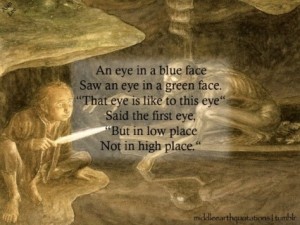
A friend lived in a remote village in northern Thailand where the people did not know what it was to dream of a better future. In response, he began to “dream out loud” sitting around the communal fire in the evening. Over time, as people began to hear his vision for the future, a space began to grow in their own lives where they could begin to dream.
Without dreams, a people will not develop. They will be unable to imagine a different future. “Where there is no vision, the people perish” (Pro 29:18 KJG). Without a concept of future (and not every culture has a concept of future) and an ability to imagine (all people have a God-given ability to imagine, though their culture may not support the imagination) individuals and nations will remain imprisoned in their past.
The apostle Paul wrote to the Corinthians, “We don’t yet see things clearly. … But it won’t be long before the weather clears and the sun shines bright! We’ll see it all then, see it all as clearly as God sees us, knowing him directly just as he knows us!” 1 Cor 10: 12 (The Message).
None of us sees with absolute clarity. But there is something clearly to be seen. Some day we will see things clearly. As the KJV says, “now we see through a glass, darkly.” The phrase may be translated “through a mirror,” a “dim image, poor reflection, indistinct image.”
 Think of a riddle, such as those featured in the deadly game between Gollum and Bilbo in the Tolkien classic, The Hobbit. Or Jesus’ parables. Meaning is there, but you have to tease it out. You eventually see what is right in front of you that was previously invisible.
Think of a riddle, such as those featured in the deadly game between Gollum and Bilbo in the Tolkien classic, The Hobbit. Or Jesus’ parables. Meaning is there, but you have to tease it out. You eventually see what is right in front of you that was previously invisible.
Paul says that God sees us “face to face” – intimately. A nursing mother sees her baby face to face. Husband and wives see each other face to face. Exodus 33:11 says, “The Lord would speak to Moses face to face, as one speaks to a friend.” This is not knowledge about someone; it knowing personally, intimately, “face to face.”
God knows us face to face. We know him through a glass, darkly. But in the future we will know him as he knows us – “face to face.” Revelation 22:4 says “and they will see his face, and his name will be on their foreheads.”
This is the already-not yet aspect of the kingdom. Now (already) we see “through a glass darkly.” Some day (not yet) we will see “face to face.”
This already-not yet perspective informs us in our concern for those communities where the poverty breaks our hearts. Do you see the brokenness of your own community or country? What are the things that make you cry? What are your longings for your country?
God purposes substantial healing in our communities. This requires a vision, even if through a glass darkly, of the future kingdom. The Lord’s prayer stands between what is and what will be.
Our Father in heaven,
hallowed be your name,
your kingdom come,
your will be done
on earth as it is in heaven.
As you pray, “Thy kingdom come, thy will be done,” imagine what your community or country could be. What would the country look like with the kingdom breaking forth?
Human beings inhabit the boundary between the spiritual and the physical, between the natural and the transcendent, between time and eternity. We live in both realms, and navigate between them. There is a path we use to traverse the boundary between these two realms. I speak of the concept of transposition.
When we pray Thy kingdom come, thy will be done on earth we are using downward transposition. It is the role of Christian to transpose heaven to earth. To envision a better future, as my friend did in Thailand, is to use downward transposition, to address the reality of the “already” in view of God’s kingdom.
We also use upward transposition to invoke the “not yet” of God’s kingdom. When we achieve here on earth things that glorify God, these will pass through the “refiner’s fire” (Mal. 3:2) and, at Christ’s return, will be transposed upwards in heaven.
Now if any man build upon this foundation gold, silver, precious stones, wood, hay, stubble; Every man’s work shall be made manifest: for the day shall declare it, because it shall be revealed by fire; and the fire shall try every man’s work of what sort it is. 1 Cor. 3:12-13
We long for what is not yet. Every human heart has a hole for that longed-for reality still outside our grasp. The German language has a magnificent word—Sehnsucht (pronounced sings-zoote)—that means “that insatiable longing and urgent desire that can be satisfied by nothing earthly.” C.S. Lewis writes of this concept in his book The Problem of Pain.
 You have stood before some landscape, which seems to embody what you have been looking for all your life; and then turned to the friend at your side who appears to be seeing what you saw—but at the first words a gulf yawns between you, and you realize that this landscape means something totally different to him, that he is pursuing an alien vision and cares nothing for the ineffable suggestion by which you are transported … All the things that have deeply possessed your soul have been but hints of it— tantalizing glimpses, promises never quite fulfilled, echoes that died away just as they caught your ear. But if it should really become manifest—if there ever came an echo that did not die away but swelled into the sound itself—you would know it. Beyond all possibility of doubt you would say ‘Here at last is the thing I was made for.’ We cannot tell each other about it. It is the secret signature of each soul, the incommunicable and unappeasable want . . . which we shall still desire on our deathbeds . . . Your place in heaven will seem to be made for you and you alone, because you were made for it—made for it stitch by stitch as a glove is made for a hand.
You have stood before some landscape, which seems to embody what you have been looking for all your life; and then turned to the friend at your side who appears to be seeing what you saw—but at the first words a gulf yawns between you, and you realize that this landscape means something totally different to him, that he is pursuing an alien vision and cares nothing for the ineffable suggestion by which you are transported … All the things that have deeply possessed your soul have been but hints of it— tantalizing glimpses, promises never quite fulfilled, echoes that died away just as they caught your ear. But if it should really become manifest—if there ever came an echo that did not die away but swelled into the sound itself—you would know it. Beyond all possibility of doubt you would say ‘Here at last is the thing I was made for.’ We cannot tell each other about it. It is the secret signature of each soul, the incommunicable and unappeasable want . . . which we shall still desire on our deathbeds . . . Your place in heaven will seem to be made for you and you alone, because you were made for it—made for it stitch by stitch as a glove is made for a hand.
Augustine prayed, “O Lord, thou hast made us for thyself, and our hearts are restless until we find our rest in Thee.” At the end of history, that prayer will be answered. All our longings will be met.
What are your godly longings for the country where you live and work?
How can these seeds become the giant tree that will inhabit the streets of the city of God?
What will be made from your hands that will adorn the halls of heaven?
- Darrow Miller







1 Comment
Jon
November 20, 2015 - 2:19 am????